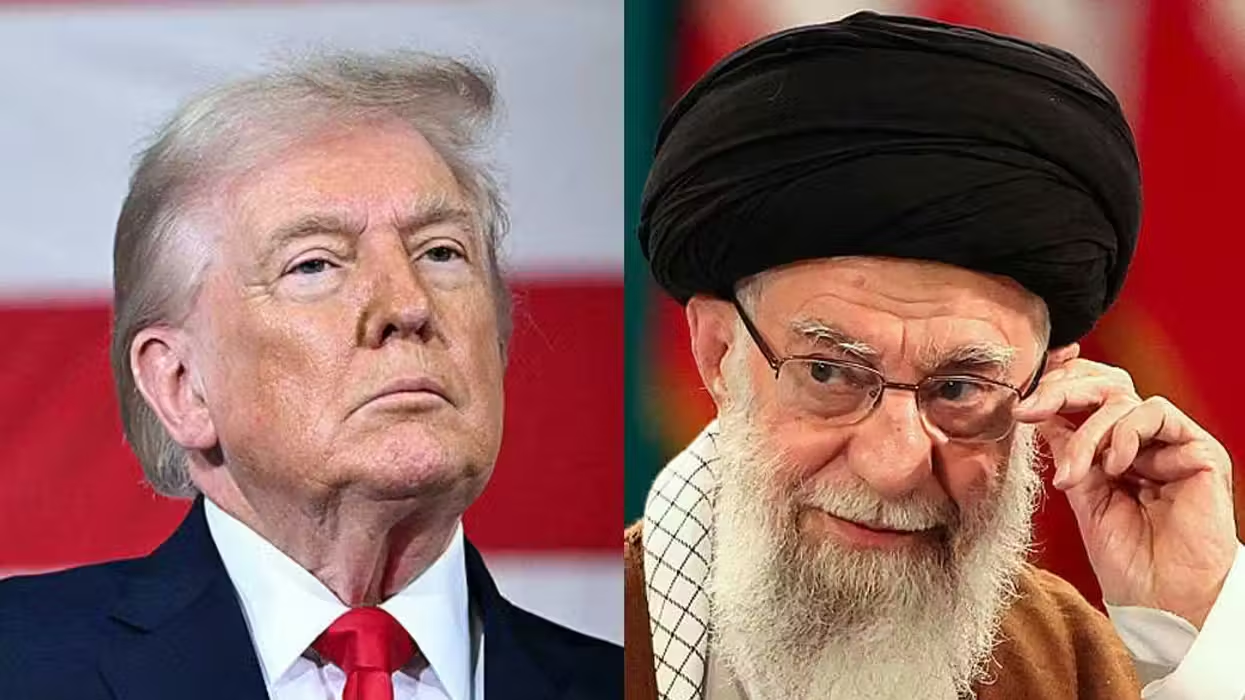
© 2026 Blaze Media LLC. All rights reserved.
Muslim Brotherhood 'Spiritual Leader' to Preach in Tahrir Square Friday
February 17, 2011
While many have hesitated to draw parallels between Iran in 1979 and the recent uprising in Egypt, Lee Smith of Tablet magazine warns that the United States should be wary of Egypt's own prospective Khomeini: Yussaf al-Qaradawi, a Qatar-based Muslim Brotherhood preacher who exiled himself from Egypt in 1961.

"Assertions that the Muslim Brotherhood and its leadership are too disorganized and uncharismatic to gain a hold on power in Egypt unaccountably ignore the world's most popular and authoritative Sunni cleric -- an Egyptian by birth and member of the Egyptian Muslim Brotherhood whose son currently lives in Egypt," Smith recently wrote.
Just as the exiled Ayatollah Ruhollah Khomeini influenced the Iranian revolution with radio broadcasts from Paris, Qaradawi is one of the region's most popular media personalities, hosting one of the regions most well-known talk-shows on Al Jazeera. His program is titled Shariah and Life and has attracted international attention for his "moderate" stance and condemnation of the Sept. 11 attacks in 2001. As Smith notes, Qaradawi has also gained immense popularity in the Middle East for his public support of violence and "stringent criticism" of Arab regimes.
But Smith warns that Qaradawi's rising star could pose potential danger as Egypt's post-Mubarak power vacuum grows:
What makes Qaradawi most worth watching is the fact that the Egyptian party system is badly decayed, and no credible opposition figures have stepped up to fill the gap. Mohammed ElBaradei is entirely a creation of Western opinion leaders and has no constituency in Egypt. Amr Moussa has some popular appeal, but his job as general secretary of the Arab League is not a position that showcases an ability to get things done. Moreover, as Mubarak’s former foreign minister he has deep ties to the old regime. The local Muslim Brotherhood was slow out of the gate, and its 68-year-old leader, Muhammad Badie, is not exactly charismatic.
As a media personality with a presence on TV and the Internet—and who is far out of reach of Egyptian internal security and free from Egyptian censors—Qaradawi is perfectly positioned to play the role of Muslim Brotherhood publicist or even kingmaker over the coming months. Nor is there any particular reason to think that Qaradawi’s willingness to embrace facets of modernity while promoting violence and hatred makes him less than dangerous to the dream of a future liberal society in Egypt and to Western interests in the region. The idea that Qaradawi is a moderate because he favors a relatively liberal interpretation of the status of women within Islam, for example, disregards his belief that homosexuality is a crime that should be punished by death and his embrace of the Holocaust as a divine punishment of the Jews that will hopefully be repeated soon.
In 2009, Qaradawi told his audience that the Holocaust was a punishment sent from Allah for Jews' "corruption."
Throughout history, Allah has imposed upon the [Jews] people who would punish them for their corruption. The last punishment was carried out by Hitler. By means of all the things he did to them—even though they exaggerated this issue—he managed to put them in their place. This was divine punishment for them. Allah willing, the next time will be at the hand of the believers.
"It would be strange if, given free elections, the Brotherhood did not eventually rule Egypt," Smith says, "for it has not only been a pillar of Cairo's political, cultural, and intellectual life since its founding in 1928; it [is] also the flower of Arab political modernity, which began with Napoleon's 1798 invasion of Egypt."
Qaradawi draws much of his inspiration from Hassan al-Banna, the founder of the Muslim Brotherhood. It's Qaradawi's ability to wed modern technology with medieval information that makes him a potentially dangerous figure in Egypt.
Qaradawi approves of wife-beating, he defends female genital mutilation and signs off on female suicide bombers, and he attacks Shia for trying to subvert Sunni nations. To the Iranians, Qaradawi is perhaps not the ideal voice of Sunni Islamism, but insofar as he rises and the Americans suffer, Tehran will make its accommodations.
On Friday, Qaradawi -- who has been banned from entering the United States -- will return to Egypt and preach in Cairo's Tahrir Square, the epicenter of the country's recent protests which ousted former President Hosni Mubarak. It will also mark the first time he's led prayers in Egypt since he was banned 30 years ago. Al Arabiya reports:
Sources told Al Arabiya that a military force will accompany the head of the International Union of Muslim Scholars from his home to Tahrir Square, provide security for the prayers and accompany him back to his residence.
Al-Qaradawi last delivered a Friday prayer sermon in Egypt in 1981 after the assassination of former President Anwar el-Sadat. ...Sheikh Qaradawi confirmed in a telephone call with the German Press Agency that he would lead tomorrow's prayers in Tahrir, with hundreds of thousands expected to attend.
Some of Qaradawi's sons and daughters took part the Tahrir demonstrations leading up to the overthrow of Mubarak.
At least one of Qaradawi's sons is a well-known political activist in Egypt and one of his daughters is an internationally renowned nuclear scientist.
Want to leave a tip?
We answer to you. Help keep our content free of advertisers and big tech censorship by leaving a tip today.
Want to join the conversation?
Already a subscriber?
more stories
Sign up for the Blaze newsletter
By signing up, you agree to our Privacy Policy and Terms of Use, and agree to receive content that may sometimes include advertisements. You may opt out at any time.
Related Content
© 2026 Blaze Media LLC. All rights reserved.
Get the stories that matter most delivered directly to your inbox.
By signing up, you agree to our Privacy Policy and Terms of Use, and agree to receive content that may sometimes include advertisements. You may opt out at any time.






